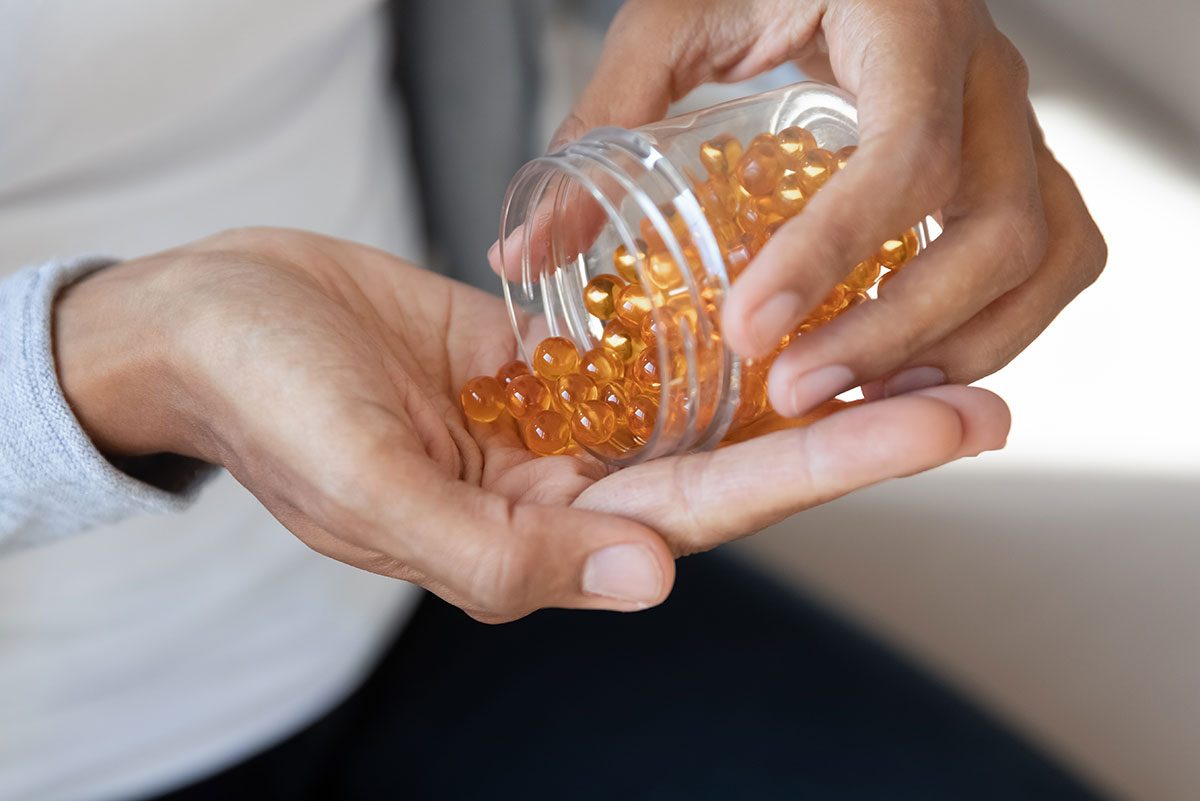The Verdict on Taking Vitamin D Supplements for Your Immunity

You’ve likely been hearing more about vitamin D in the past few months than ever before. This is because it’s being touted as one of the best ways to prevent illness, boost your immune system, and otherwise improve your health. But, as with anything, it’s essential to do your research to understand the facts better. The truth is, while we would all love a magical solution that keeps us healthy, there isn’t a miracle pill or supplement. Here, what you need to know about taking a vitamin D for immunity, and for more healthy tips, be sure to check out our list of the Best Supplements To Buy at Costco, Say Experts.
The benefits of vitamin D
In general, we all need vitamin D, and most of us don’t get enough. The most natural source of vitamin D is sunshine, and spending time outdoors helps to raise our vitamin D levels. However, unless you’re someone who works outside all day, every day, you may need to change your diet or take a supplement to meet your vitamin D requirements: at least 600 international units (IU), according to the Mayo Clinic. Most vitamin D supplements offer between 1,000 and 2,000 IU, which the Mayo Clinic also says is generally safe for adults. As we age, we may even need more vitamin D, around 800 IU.
If you don’t think you quite need a supplement—or your doctor didn’t recommend one—you should try to balance your diet to include vitamin D-rich foods, like egg yolks, beef liver, cheese, fatty fish, including salmon, mackerel, and tuna. Also, many dairy or dairy-alternative products are fortified with vitamin D, like milk (and milk substitutes), cereals, and orange juice.
The verdict on vitamin D and immunity
Vitamin D matters because it’s one of the key players that keeps our body functioning properly. Particularly because it allows us to absorb calcium, which we all know is essential for bone health. It also takes part in our muscle and nerve development and the upkeep of our immune system. However, to what extent it supports our immune system is still being studied.
There have been two critical studies on vitamin D and our immune system, one of which was a small one focusing on school-aged children. One group was given a vitamin D supplement, while another was not. Those who took the supplement were less likely to get the flu. An additional study of adults was not able to link vitamin D with fewer upper respiratory infections.
So what’s the verdict? It doesn’t hurt to take a vitamin D supplement, particularly if you’re deficient or if you suspect you could be deficient. When taken regularly as advised by your doctor, it’s only going to help your health. But it likely won’t prevent you from getting sick if you don’t follow other preventive measures, like eating a balanced diet, exercising, washing your hands regularly, and ensuring you are up-to-date on all vaccinations as recommended by the CDC.
Get even more healthy tips straight to your inbox by signing up for our newsletter! After, read these next:








